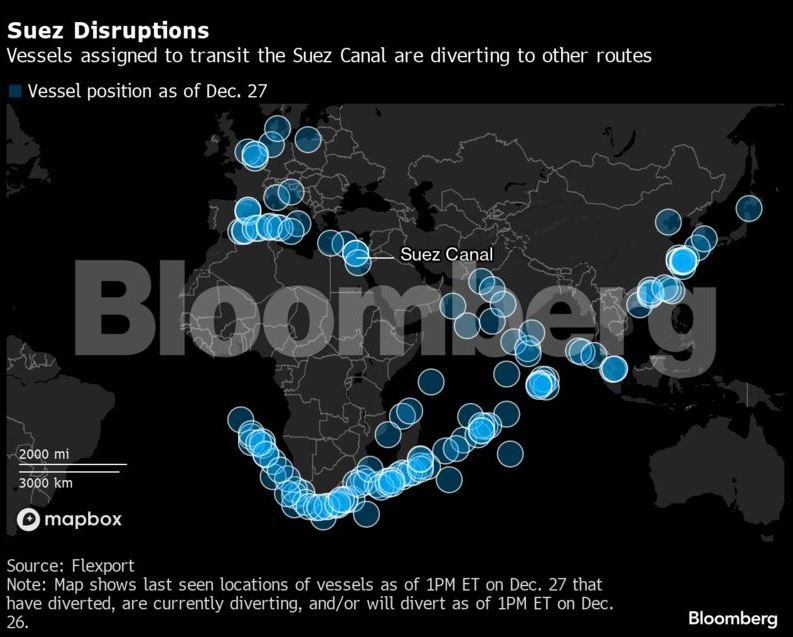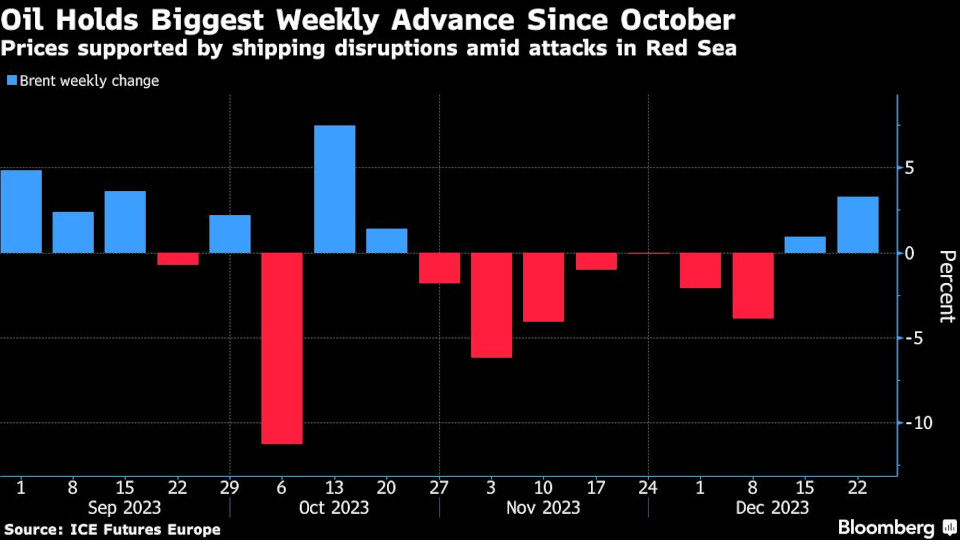
Newsroom
In a dramatic response to mounting security threats, half of the container ships navigating the Red Sea and the Suez Canal are steering clear of the danger zone.
Recent data from Flexport reveals a staggering shift, with 299 vessels, boasting a combined capacity of 4.3 million containers, altering courses to evade potential attacks—an alarming surge representing 18% of global shipping capacity.
The repercussions extend beyond the immediate danger, as the alternative route around Africa not only adds 25% to travel time between Asia and Europe but also escalates expenses.

This ominous trend could trigger price hikes across diverse products, spanning from oil to shoes and food, should the situation persist.
The origin of the threat lies in Yemen, where Houthi rebels claim responsibility for attacks on Israeli-affiliated ships, ostensibly in solidarity with the Palestinians. However, the widening conflict jeopardizes global trade, prompting a swift response from a US-led task force dedicated to safeguarding merchant ships in the region.
Amidst this turmoil, some ships strive to assert neutrality, three vessels—a Russian oil tanker and two container ships—boldly crossing the passage signal their lack of contact with Israel, as per data from TankerTrackers.com and Bloomberg. These actions underline the complexity and uncertainty surrounding international trade, especially after the Houthis executed over 100 attacks on merchant ships last month.
Notably, industry giants react differently to the crisis; Maersk, the world's second-largest container shipping force, prepares to return to the Red Sea "as soon as operationally possible," contrasting with Hapag-Lloyd's decision to keep its ships out of the troubled waters.

Data from Clarksons Research unveils a 40% decline in arrivals in the Gulf of Aden from December 22 to 26, compared to the first half of the month. Similarly, Suez Canal transits for southbound vessels plummeted by 45% during the same period, accentuating the profound impact on global shipping.
While the US and its allies successfully deter some attacks, the defense strategy incurs significant expenses. Bloomberg Economics highlights the continuous rise in shipping insurance costs, underscoring the enduring risks and challenges facing the maritime trade industry.
































